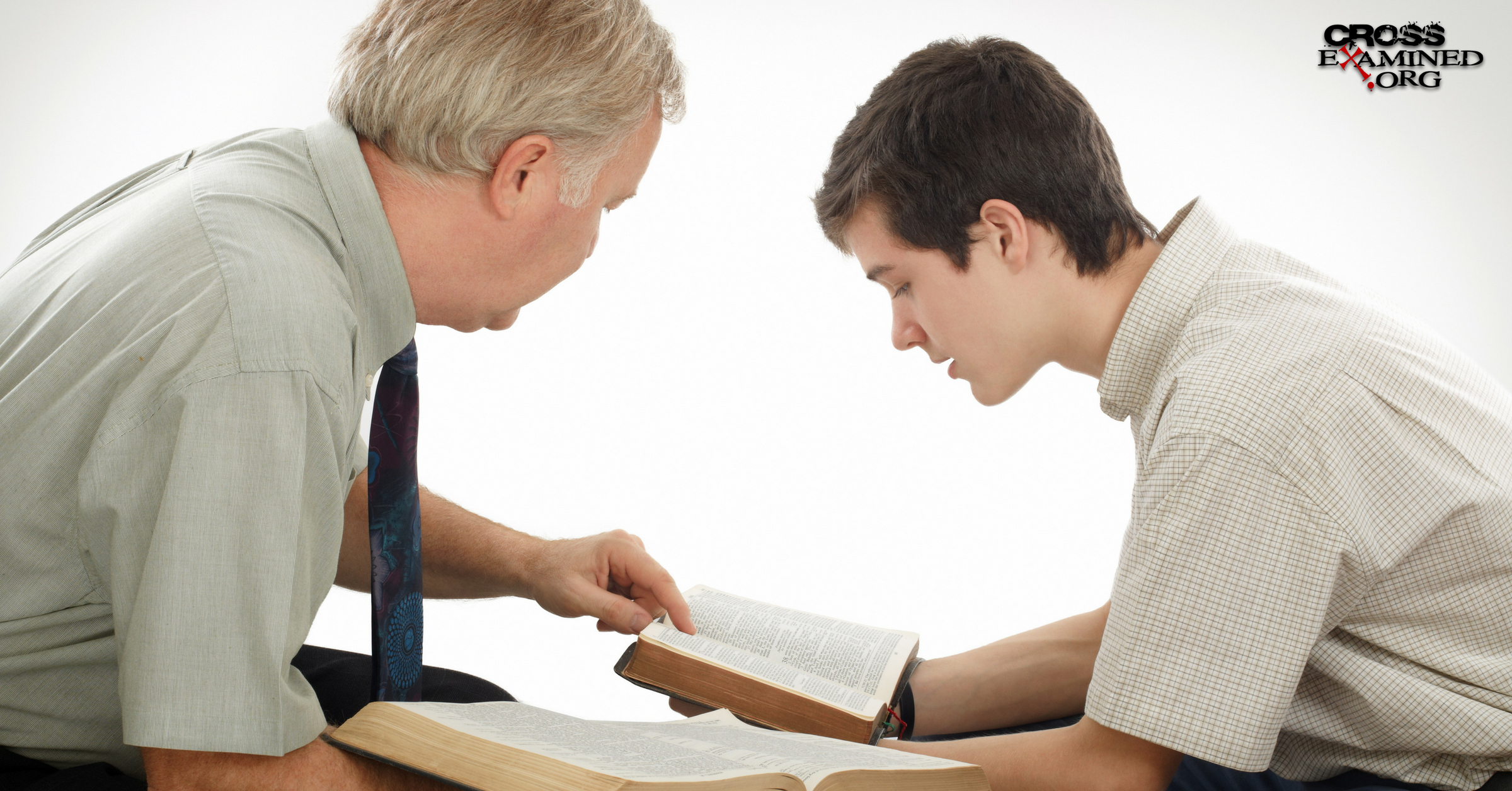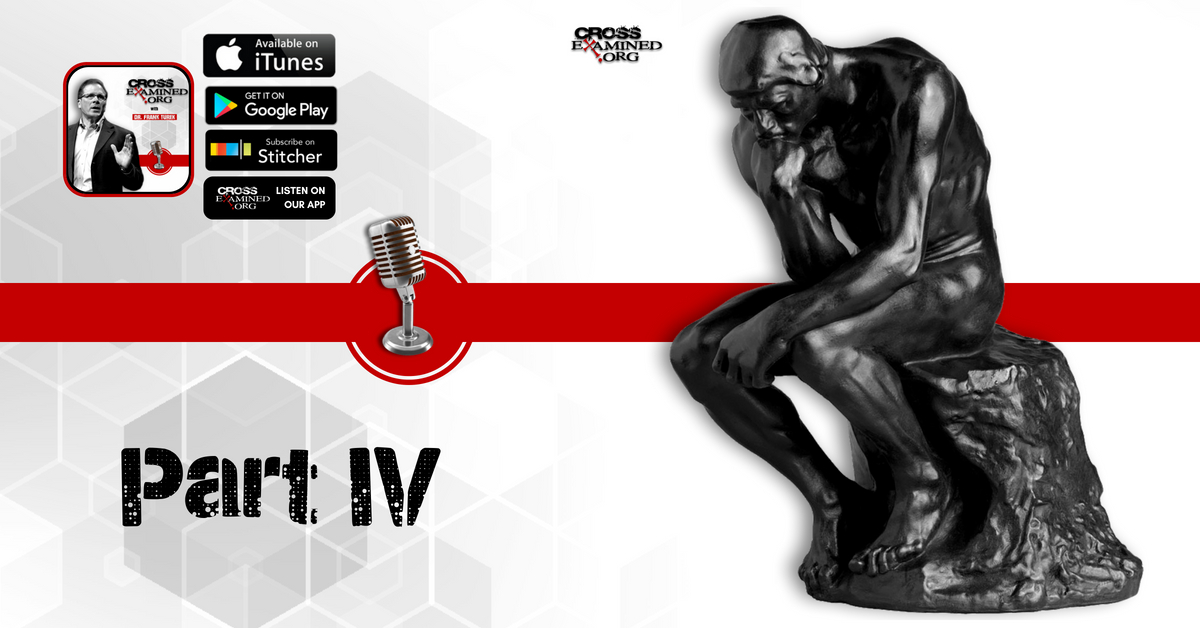If you search the pages of Scripture looking for a list of “offices” (leadership positions within the Church), you are likely to find eight roles described in the New Testament: apostles, prophets, evangelists, pastors, teachers (Ephesians 4:11), elders, deacons, and bishops (1 Timothy 3:1-7, 1 Timothy 3:8-13, Titus 1:6-9). One thing you will never find on any biblical list of leadership positions is the office of “apologists.” Why is this position missing from the scriptural list? Wouldn’t it be wise for every church to have a trained and qualified advocate for the Christian case ?
I can tell you from personal experience: as I travel around the country, very few church leaders seem to be interested in apologetics, and even fewer have studied in this area. In fact, many seminaries do not even offer apologetics courses as part of their Master of Divinity programs (the bachelor’s level sought by pastors). The reason the role of apologist is not found in New Testament leadership listings is not because it is not important enough to be represented in a separate office within the Church. In fact, it is quite the opposite. The responsibility to be an apologist is assigned to all of us as Christians .
God wants each and every one of us to be “always prepared to give an answer to everyone who asks a reason for the hope that is in [us]” (1 Peter 3:15). Our personal responsibility to be an advocate of a case for Christianity is not set aside in an office for the same reason that our personal responsibility to pray is not set aside in an official office within the church. There are no churches with official “prayers” for the same reason that there are no official advocates of the church; this responsibility is given to all of us as Christians. It is fundamental to our identity. If you are a Christian, you are an advocate . Not every Christian must be an apostle, prophet, evangelist, pastor, teacher, elder, deacon, or bishop, but every Christian must be an apologist.
The New Testament assumes that every apostle, prophet, evangelist, pastor, teacher, elder, deacon, and bishop will be a good advocate of the Christian case, and the assumption (outlined in 1 Peter 3:15) is so fundamental that it is not assigned as a separate office. Sadly, we have failed to see the fundamental nature of advocating the Christian case (despite the directive in 1 Peter and the numerous examples of the discipline offered in the book of Acts). Few pastors have embraced the study of apologetics as part of their daily spiritual discipline, and even fewer have modeled this important aspect of the Christian life to their congregations. I do not write this as an abstract criticism, but as a reflection of my own personal experience.
By the time I graduated from seminary, I was already pastoring. Although my personal journey to faith was largely dependent on my own investigation of evidence, my seminary experience did not confirm the importance of apologetics as a Church leader. In fact, my home Baptist seminary did not offer a single course in Christian Case-Making. For the first few years as a youth pastor, I did not explore apologetics with my students. After a year or so, I realized that my students were not prepared for college and struggled easily once they left the safety of our youth group. I committed to returning to apologetics as a primary responsibility, and for the next ten years (as both youth pastor and senior pastor) I taught and modeled Christian Case-Making in my group on a weekly basis.
There are some pastors who understand the fundamental nature of apologetics and have modeled this responsibility to their congregations. They have preached, written, and even taken their message online as apologetic pastors. I have been compiling a list of these pastors so you can see what this type of leadership looks like in the Church (thanks to Frank Turek, Brett Kunkle, Greg West, and Brian Auten for helping me with this list):
Anthony Weber, Church of the Living God in Traverse City, Michigan.
Bobby Conway, Life Fellowship Church in Huntersville, North Carolina.
Brian Chilton, Huntsville Baptist Church in Huntsville, North Carolina.
Carl Gallups, Hickory Hammock Baptist Church in Milton, Florida.
Christopher Brooks, Evangel Ministries in Detroit, Michigan.
Dan Kimball, Vintage Faith Church in Santa Cruz, California.
David Robertson, St. Peter’s Free Church, Dundee, Scotland.
Derwin Gray, Transformation Church in Indian Land, South Carolina.
Edgar Andrews, Campus Church in Welwyn Garden City, Hertfordshire, UK.
Erwin Lutzer, Moody Church in Chicago, Illinois.
Jack Wellman, Mulvane Brethren Church in Mulvane, Kansas.
Joe Boot, Westminster Chapel , Toronto, Ontario.
Mark D. Roberts, Laity Lodge in Leakey, Texas.
Matt Rawlings , Christ ‘s Community Church in Portsmouth, Ohio.
Mike Spaulding, Calvary Chapel in Lima, Ohio.
Phil Fernandes, Trinity Bible Fellowship in Silverdale, Washington.
Rice Broocks, Bethel World Outreach Church in Brentwood, Tennessee.
Timothy Keller, Redeemer Presbyterian Church in New York City, New York.
Todd Wagner, Watermark Community Church in Dallas, Texas .
Voddie Baucham, Grace Family Baptist Church in Spring, Texas.
I’m sure there are many more apologetic pastors, but in putting together this list, each of us lamented its brevity. Wouldn’t it be nice if a blog like this couldn’t even be written? Would it be great if the potential list of apologetic pastors were so long that it couldn’t be succinctly outlined? Perhaps it’s time for all of us, as members of congregations across the country, to encourage our pastors to develop a discipline and practice of personal apologetics. But before we demand this of others, let’s make sure each of us accepts our personal responsibility to be the best advocates of the Christian case we can be.
J. Warner Wallace is a Cold Case Detective , Cold Case Christian Advocate , Senior Fellow at the Colson Center for Christian Worldview , and the author of Cold-Case Christianity , Cold-Case Christianity for Kids , God’s Crime Scene , God’s Crime Scene for Kids , and Forensic Faith .
Original Blog: http://bit.ly/2NWpnkn
Translated by Maria Andreina Cerrada










